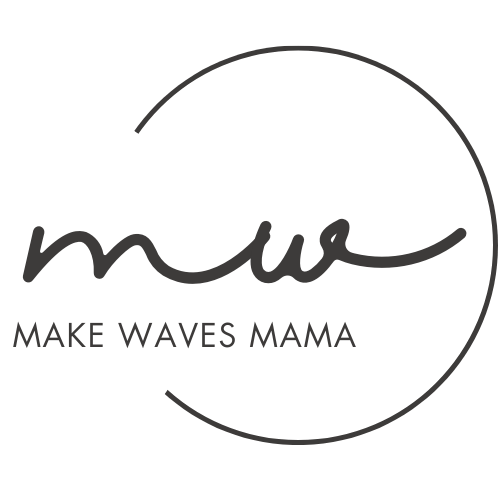5 Ways We Get Resilience Wrong
May 29, 2025
A little while ago, I was sitting with my husband after a long day of appointments. We were both tired. I turned to him and said, "When we're through this, what if we try running the NYC Marathon together?"
He paused, smiled softly, and said, "I love the idea, but I'm not sure if that's the right move for my healing body. There's a lot of pressure to come out of this and do something grand. But maybe what I'll really need is just time. Time to heal, to be with you and the kids, to feel normal again."
That honesty stayed with me (also, the relief since I'm not a runner). It wasn't about running a marathon or proving we'd 'won' against cancer, again. It was about giving ourselves permission to prioritize what matters day-to-day. We've had so many conversations lately about what resilience really looks like - about tuning out the pressure to 'bounce back better' or turn pain into performance.
Because everywhere we look - especially online - we're surrounded by these big comeback stories:
- The entrepreneur who built an empire after bankruptcy
- The parent who became a wellness guru after postpartum depression
- The cancer survivor who completed a triathlon
- The divorced mom who found her dream career
These stories are inspiring, but they also set an impossible standard for those of us just trying to get through tough seasons. After navigating cancer as a family - twice - and hearing from others facing their own mountains (whether it's parenting, job loss, divorce, caregiving, chronic illness, financial stress), I've realized: we've gotten resilience all wrong.
The pressure to turn our struggles into inspiration isn't just unrealistic; it's harmful.
Through our conversations and connecting with others facing their own challenges, I've noticed five ways our culture misunderstands resilience, and what people facing real challenges actually need instead:
1. We think resilience means grand gestures
What we often hear: If you're not doing something big - writing a book, starting a foundation, radically transforming your life - are you even resilient?
What it actually looks like:
- Getting through treatment while managing chemo brain at the grocery store
- Navigating after-school pickup traffic with cranky kids in the backseat
- Making it through another doctor's appointment while holding your own life together
- Choosing rest over productivity, accepting a friend's offer to help, or finding a reason to laugh at dinner
Real resilience happens in the quiet moments, when no one is watching, when no one's applauding.
2. We confuse independence with strength
What we often hear: Strength means handling everything yourself.
What it actually looks like:
- Accepting help - whether it's meals during treatment, babysitting during a divorce, or just a shoulder to cry on
- Saying "yes" when someone offers practical support
- Letting loved ones take over tasks you usually handle, without guilt
- Building a support system before you desperately need it
Some of the strongest people I know are those who receive help as skillfully as they give it.
3. We expect constant positivity
What we often hear: Stay positive. Find the silver lining. Be grateful for the journey.
What it actually looks like:
- Giving yourself permission to feel the full range of emotions
- Some days are devastating. Some moments feel hopeless. That's human.
- Allowing yourself to be angry, scared, or overwhelmed without trying to fix it
- Understanding that "positive thinking" isn't a cure-all for real problems
True resilience includes emotional honesty, not forced optimism.
4. We measure success by milestones
What we often hear: Celebrate the big wins - clear scans, dream jobs, divorce finalized.
What it actually looks like:
Celebrating small, quiet victories:
- Made it through treatment without too much nausea? Win.
- Got the kids to school with matching shoes? Win.
- Managed a conversation with an aging parent without losing patience? Win.
- Completed a job application while facing rejection? Win.
- Had a real, connecting conversation with your partner during a tough season? Win.
The small stuff isn't small. It's everything.
5. We expect people to be inspirational
What we often hear: You should share your story to inspire others.
What it actually looks like:
- Giving yourself permission to process your experience privately
- Not feeling obligated to turn your pain into a public lesson or motivational speech
- Understanding that you don't owe anyone inspiration or a takeaway from your hard times
Sometimes, resilience just means surviving the experience, without packaging it for public consumption.
A Personal Note
I realize the irony here: I'm literally sharing our cancer journey on this blog and social media. But there's a huge difference between feeling pressured to inspire and choosing to share authentically.
For me, writing about our story isn't about turning pain into a TED talk or content with a tidy takeaway. It's about connection. It's about finding the community I wish I had when we started this journey. It's a creative outlet, a way to process what we're going through, and, honestly, it's been therapeutic in ways I didn't expect.
The key is choice and intention. When you share because it helps you heal, connect, or create, that's your decision. When you feel obligated to make your pain "worth something" for others, that's when it becomes harmful.
What People Facing Challenges Really Need
- Recognition that this is hard. Whatever you're facing doesn't necessarily make you stronger; it makes you tired, and that's normal.
- Support for the long haul. Consistent, low-key check-ins matter more than dramatic gestures.
- Permission to be human. Bad days, survival mode, and "just getting through it" are valid.
- Space to define your own recovery. "Better" might not include marathons, career pivots, or dramatic life transformations - and that's okay.
The Quiet Strength That Matters
Real resilience isn't flashy. It doesn't make for perfect Instagram posts. It's often invisible to everyone except the people living it.
It's the cancer patient getting through another day of treatment. It's the parent managing work, kids, and their own needs without falling apart (most days).
It's the caregiver juggling logistics and emotions, holding everything together with duct tape and deep breaths. It's the person facing job loss who keeps showing up, trying again. It's the family finding moments of normalcy and joy in the middle of chaos.
It's about showing up imperfectly, accepting help, and moving forward one small step at a time - whatever that looks like for you.
My husband was right that day. Sometimes what we really need isn't a marathon to prove we've overcome something. Sometimes we just need time. Time to heal, to be with the people we love, to feel normal again. And that's not just okay, it's exactly the kind of quiet wisdom that real resilience is built on.
This week, with National Cancer Survivors Day on June 1st, let's celebrate the quiet strength that doesn't make headlines but makes all the difference. Let's honor those who are simply getting through, without expecting them to inspire anyone else.
💌 What does resilience look like for you right now? I'd love to hear. Email me at [email protected].
💌 Want more conversations like this? Subscribe to my newsletter here and join a community that's here to share, support, and learn from each other.
Stay connected
Sign-up for a mix of honest insights, tips, and stories delivered to you each week via Your Weekly Boost.
We hate SPAM. We will never sell your information, for any reason.

